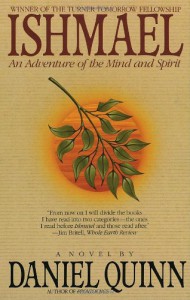Dated, Still Relevant

The last great finical debacle, the one in 2007, is still affecting people the world over, but the affect is still heavy in American. I was personally affected, my wife and I both lost jobs. We have yet to recover from that. There was a snow storm a few weeks back. It occurred when the Polar Vortex slipped it’s usual spot over the North Pole and paid North America a visit. The company I work for is dependent upon trucks from Chicago based warehouses to fulfill the retail stores needs. So, when the snow kept trucks from arriving here in Kansas City, we as a store were limited as to what we could offer our customers. This, like the economic crash, got me thinking about how well connected everything is. Wall Street was too big to fail so money was thrown at it, given to those who caused the problems in the first place. What if they had failed? Could America have survived? What if this snow storm had been worse? Would food have stopped coming in to Kansas City altogether? Just how fragile is our system of life, and should it really stay that way?
These thoughts are similar to ones I have often that are concerned with the amount of resources we use to make useless things we don’t need. The amount of waste we produce. Also, the consumer culture that drives us to make and purchase these cheap trinkets. What does living and working like this doing to us? From my view of history, we have never lived like this. The few times people of the past have gotten anywhere near we are now it was chaos, it was disaster. I can only think that disaster and chaos are all that is meant for our future, we have yet to see any of the dangers of living out of balance with the earth.
Thinking such thoughts will lead a person to want to find some comfort. One of the ways to do that is find people who have been working on the problems at hand and see if they have some potential solutions drawn up. These types of people publish books to share their findings and thoughts. There are many books out there talking about our ills and sometimes a few seem to keep surfacing. This makes them tempting to read even if they are dated. One of these books is Small is Beautiful: Economics as if People Mattered by E.F. Schumacher. It was originally published at the beginning of the energy crisis in the early ’70’s. It was one of the early books that served as a warning against our insatiable appetite for earths resources and our over blown sense of self-importance.
Schumacher makes an argument we current day folks are somewhat familiar with. The resources we take can’t be replaced fast enough to be sustainable. Nature can only take some much pollution before it becomes toxic for all life on earth. Handing out technology and first world ways of doing things to developing third world economies will solve nothing. It is these first world economies that have it wrong in the first place. He speaks on how the fast paced economics of the modern world dehumanizes us. He talks about compassion, being caretakers, rather than profit makers, and he waxes on about quaint ways of life.
I won’t spend time here deconstructing his work to prove my intelligence or to sound preachy, complete with moral high ground from which to preach from. I will simple say, you should read this book. Now, mind that you don’t have to. This book has become such a staple for the environmental front and eco-warriors, and so many others. Schumacher’s thoughts have become foundational stones for such movements, therefore reading his 1973 book won’t provide you with some profound enlightenment that current literature has ignored.
However, there are reasons to read this book. I was shocked to compare the data that Schumacher used with the current data we have now. Levels of pollution and economic inequality, for example. When he was writing this warning things weren’t as bad as they are now. All of this made his warnings all the more dire. There was also his idea of decentralizing our economies, our means of production. This was real interesting to me, for what he was talking about was small self-sustaining economies. So, in the case of the snow storm, well that wouldn’t have effected Kansas City if Kansas City was more responsible in creating it’s own food. If Kansas City had a self-sustaining economy than the 2007 crash wouldn’t have been a threat either. Think of populations of people acting somewhat like terrorist cells. If some type of natural disaster befell one part of the world, it wouldn’t effect another. A city without a crisis wouldn’t find itself in one because of a another city in crisis. This would create more sustainability the world over.
Working in such a way would create village economies and these economies would have to operate on the idea of ‘enoughness’, or only using what you need. We don’t need to take and take until we have so much waste. We can have wealth and be content, thus making sure more people have wealth and future people have wealth. Schumacher called this thinking Buddhist Economics, in his words, "the aim ought to be to obtain the maximum amount of well being with the minimum amount of consumption." By not living this way we over work ourselves just so we can consume, and all that makes us human is shoved away so we can sit in a cubicle or waste away at a type of manual labor that destroys our bodies. Instead, if we lived by Buddhist Economics, we would have more time and energy to be with people and spend more time producing that which makes us happy. Schumacher takes about the happiness that people get from creating things from their own hands, even if it is just a chair. Slow labor with an acquired skill is a path to happiness.
This notion of Buddhist Economics struck a cord with me, as before I ever read Schumacher’s work I had read Me and Mine: Selected Essays of Bhikkhu Buddhadasa. Bhikkhu Buddhadasa is one of Thailand’s most famous monks. At the time when the Thai government was hunting down the communist ‘threat’ in Thailand for American interests, because America paid them millions of dollars to do so, Buddhadasa was using Buddhist teachings to argue in favor of socialist economic models. He even talked directly about Buddhist Economics as well. He felt that any moral Buddhist person would favor an economic model that brought as much health and sustainability to as many as possible.
So, while I enjoyed reading this book, it is dated. If you are looking for current day thoughts on the current data we have concerning the state of the world, this is not a book to pick up and read. However, if you are interested in reading some of the early works on environmentalism and ethical economics, this would be a good place to start. Whether you choose to read it or not, works such as Schumacher’s are becoming more and more common. There are many educated people working on world crushing problems right now and they are taking their findings straight to the people. They do this because those with power, governments, corporations, aren’t listening. As a matter of fact, they are actively trying to silence research that could save us and our future on this planet. So, read Schumacher or not, but start somewhere.


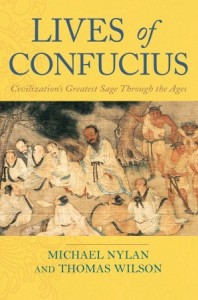

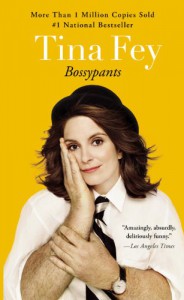
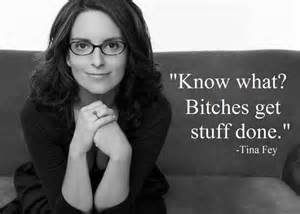

 medieval ethos. There are several characters that the novels follow, making the story wider in scope and more entertaining. There is Anne Dare a young princesses of Crotheny and her best friend and servant Austra. There is Aspar White, a holter protecting the king’s forest. Stephan Darige, a young monk and scholar. Neil MaqVren, a simple knight, but powerful and skilled who serves the queen loyally. There is also Cazio Pachiomadio da Chiovattio, a cunning and witty student of the sword and women. That is just to name a few.
medieval ethos. There are several characters that the novels follow, making the story wider in scope and more entertaining. There is Anne Dare a young princesses of Crotheny and her best friend and servant Austra. There is Aspar White, a holter protecting the king’s forest. Stephan Darige, a young monk and scholar. Neil MaqVren, a simple knight, but powerful and skilled who serves the queen loyally. There is also Cazio Pachiomadio da Chiovattio, a cunning and witty student of the sword and women. That is just to name a few.
 Calvin and Hobbes: A Calvin and Hobbes Treasury.
Calvin and Hobbes: A Calvin and Hobbes Treasury. 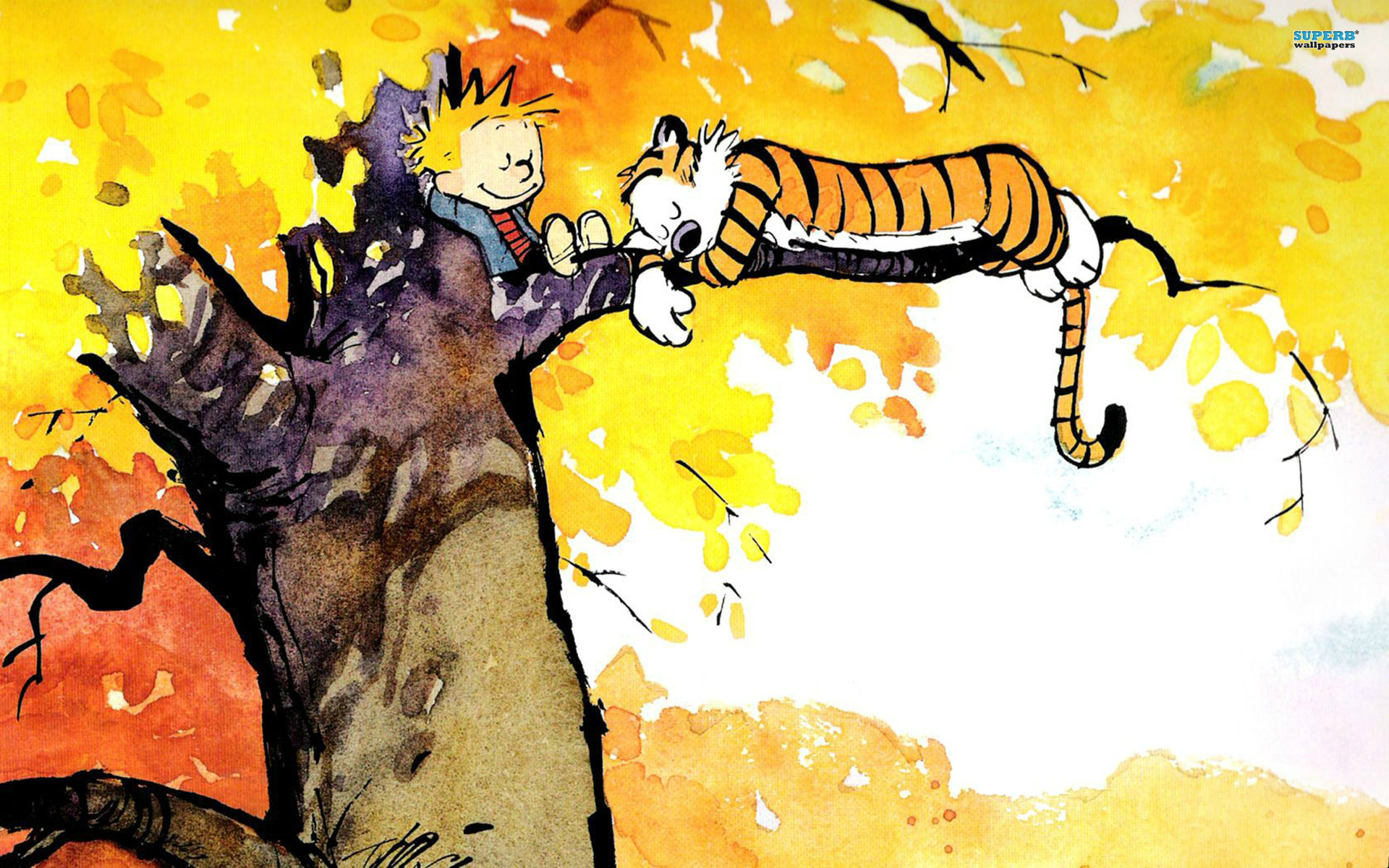
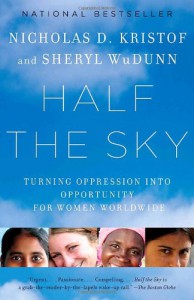
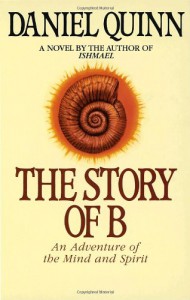
 was a game, something like a board game and that I needed other people to play. I didn’t have other people to play, but that did not discourage me. I tried to play it anyway. Of course I failed and soon gave up, just looking at the pictures and being inspired by someone else’s creativity. I kept it for years, in fact, I might still have it in a box somewhere. I was always hoping I would meet someone that I could play it with. I was glad I had the Lone Wolf books, for they were kinda like tabletop games, but they could be played by one person. They were like a cross between D&D and Choose Your Own Adventure books. How cool they were I will save for another time.
was a game, something like a board game and that I needed other people to play. I didn’t have other people to play, but that did not discourage me. I tried to play it anyway. Of course I failed and soon gave up, just looking at the pictures and being inspired by someone else’s creativity. I kept it for years, in fact, I might still have it in a box somewhere. I was always hoping I would meet someone that I could play it with. I was glad I had the Lone Wolf books, for they were kinda like tabletop games, but they could be played by one person. They were like a cross between D&D and Choose Your Own Adventure books. How cool they were I will save for another time.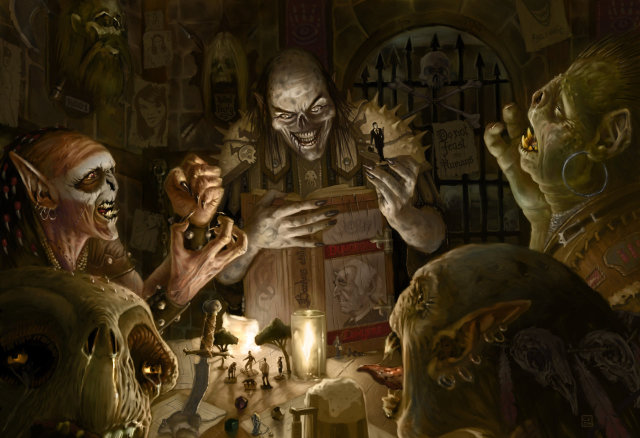
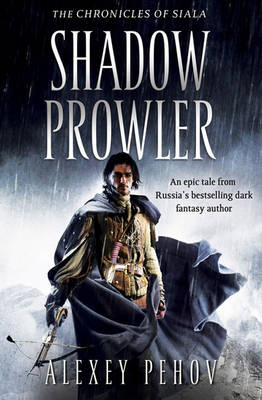 Pehov’s Shadow Prowler, but I got over that. I was too interested to see what a dark fantasy told in first person would be like. It is not often any fantasy is told in first person, let alone one that is dark. Also, I was curious to see what the Russian idea of a dark fantasy was. Alexey Pehov, if it isn’t obvious, is Russian. He books have done very well and have been translated into english now. I have had pretty good experiences reading European fantasy, like Markus Heitz, for example. As far as Shadow Prowler is concerned, well, I wasn’t astounded, but I had fun.
Pehov’s Shadow Prowler, but I got over that. I was too interested to see what a dark fantasy told in first person would be like. It is not often any fantasy is told in first person, let alone one that is dark. Also, I was curious to see what the Russian idea of a dark fantasy was. Alexey Pehov, if it isn’t obvious, is Russian. He books have done very well and have been translated into english now. I have had pretty good experiences reading European fantasy, like Markus Heitz, for example. As far as Shadow Prowler is concerned, well, I wasn’t astounded, but I had fun.
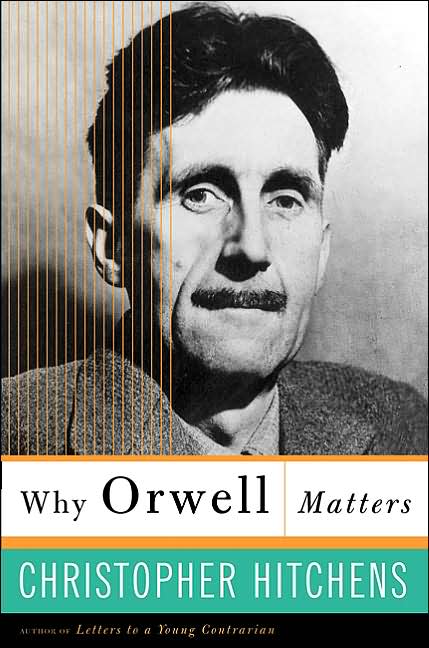 argument of some kind, about why, how, or the impact of said events. Why Orwell Matters is not a history book, it does not deal with one event, or turning point in history. It deals with Orwell’s works, and not just 1984 and Animal Farm, but his lesser known works of fiction and non-fiction, even his letters and the impact that they have had.
argument of some kind, about why, how, or the impact of said events. Why Orwell Matters is not a history book, it does not deal with one event, or turning point in history. It deals with Orwell’s works, and not just 1984 and Animal Farm, but his lesser known works of fiction and non-fiction, even his letters and the impact that they have had.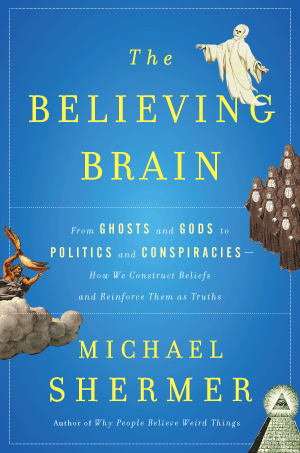 did something influence them? The behavior of others perhaps? Also, they will take a product from the same place. There could be five rows of this product, yet everyone will take from the same row. Now, while I am speaking of very small matters I can tie these into larger matters, such as the political or religious beliefs of people and ask the same questions. Which is why Michael Shermer’s book The Believing Brain: From Ghost and Gods to Politics and Conspiracies - How We Construct Our Beliefs and Reinforce Them as Truths was of interest to me.
did something influence them? The behavior of others perhaps? Also, they will take a product from the same place. There could be five rows of this product, yet everyone will take from the same row. Now, while I am speaking of very small matters I can tie these into larger matters, such as the political or religious beliefs of people and ask the same questions. Which is why Michael Shermer’s book The Believing Brain: From Ghost and Gods to Politics and Conspiracies - How We Construct Our Beliefs and Reinforce Them as Truths was of interest to me.